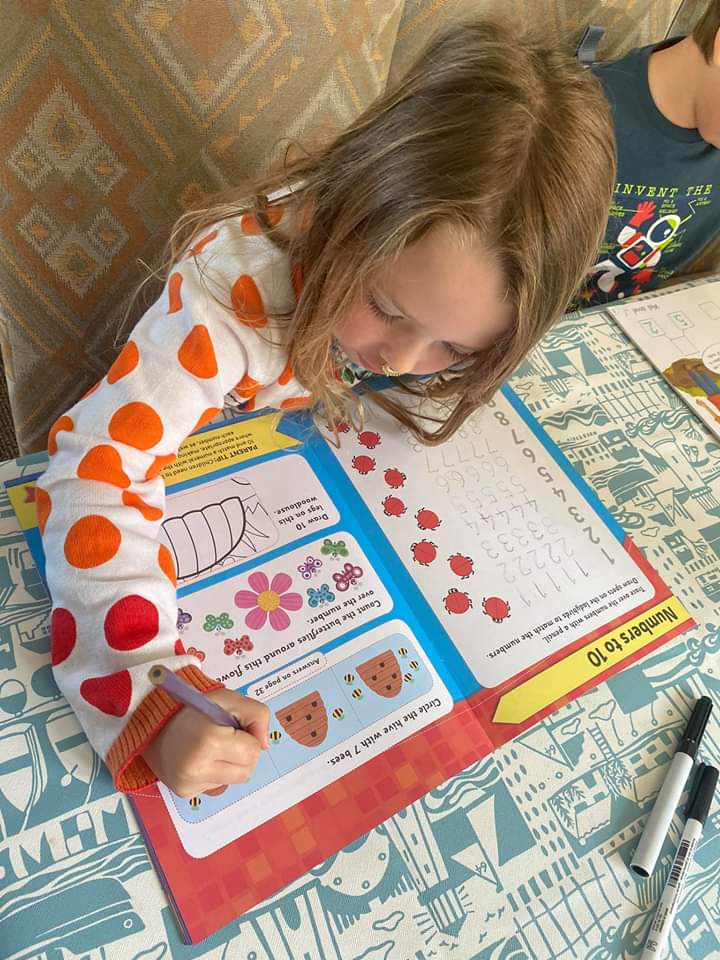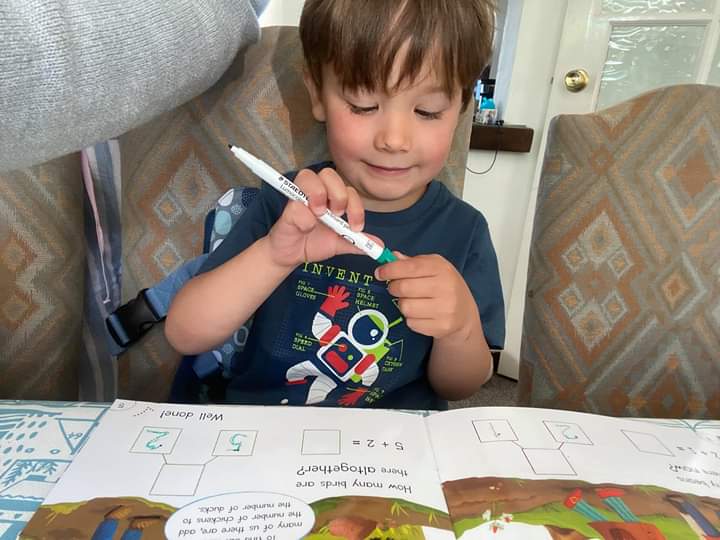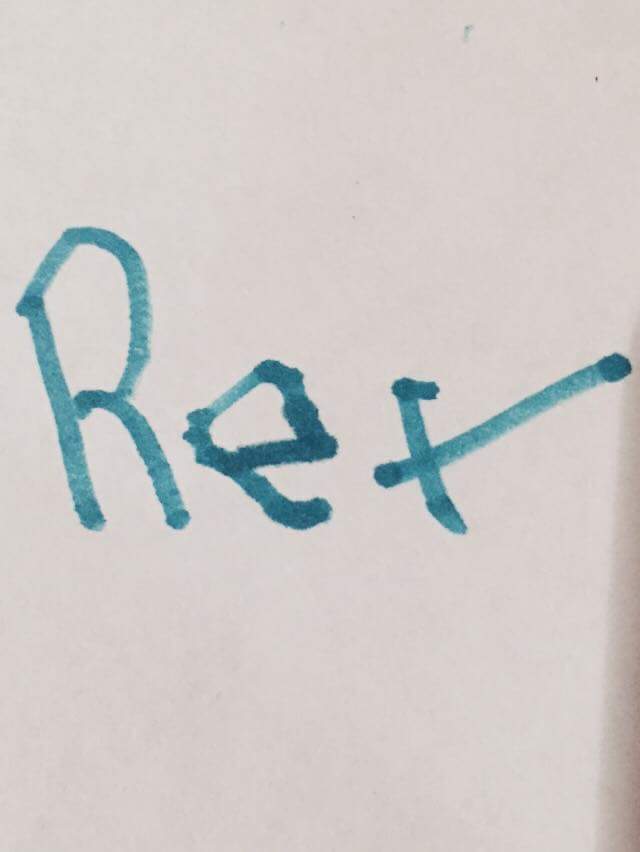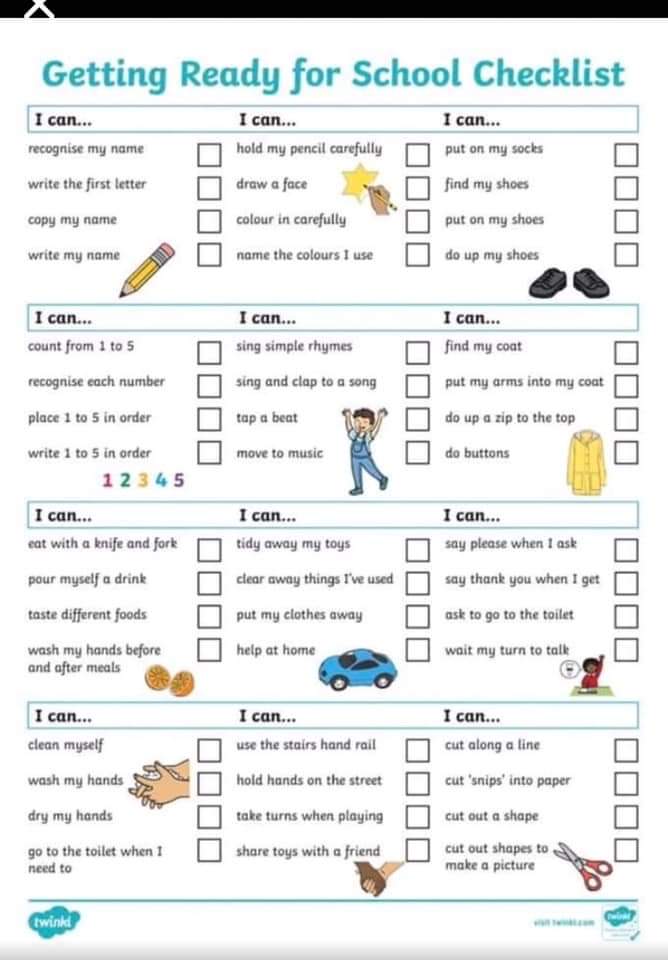I was recently asked by a parent what her child will be expected to do before starting school.

My answer was as all children are individuals and therefore different there are no set rules, as such.
I suggest that a child should be toilet trained ( could be difficult for a child with special needs) and be able to pull down/up their pants and trousers.
Children should be willing to share and take turns with others; this is a skill that they would have learned by going to a child minder or nursery setting, or if they have siblings at home. Children will need appropriate listening skills and be able to take instruction from the teacher.
Being able to hold a pencil correctly and use cutlery would also be beneficial
how children learn to write here

, Being able to put on and do up their own coat will be of benefit to the class teacher ( imagine a teacher having to put on 30 odd coats every day!
The ability to recognise a child’s own name is useful, when I was working as a registered child minder I printed out the children’s names and stuck them above the coat hooks, it was surprising how quickly they learned to pick out their own place to hang coats and place shoes under.

Letter recognition here.
Many parents worry that their offspring need to know all about numbers and letters , this is why they go to school to learn these things if you want to give your child a head start number recognition here
There are, of course, tick charts available to help parents to determine what children should know and be able to do, but I am not a fan of these because they can encourage parents to compare their children to others and as I have already stated all children are different.

Whatever your child can or can’t do before starting school don’t stress about it as a child will pick up on this and become overly concerned about starting school. Hopefully your child will have met their teacher and visited the school and classroom before the big day.
As always questions and comments are welcome.
Until next time.
Karen
x
Linked with

Discover more from The Next Best Thing To Mummy
Subscribe to get the latest posts sent to your email.
I remember being so worried that my daughter would be behind when she went to school because she had never been to day care. I worked so much with her to know how to spell, read, and write her name and do all kinds of other things that half of her class didn’t know how to do when she got there! LOL #alittlebitofeverything
Children here HAVE to be toilet trained before they start school or they are not accepted. It puts a lot of unnecessary pressure on. #globalblogging
A lot of the self care things are really helpful – after all you can’t listen to the teacher if you are still getting your coat off. #kcacols
My daughter is not at school age yet but these are really useful things to think about. Especially the buttoning of a coat and recognizing their name – I hadn’t thought about those things before. Thanks so much for linking up at #KCACOLS. Hope you come back again next time.
I think for most kids toilet training happens on their schedule, not ours, but I know that once we told my daughter that she had to be done doing anything but on the potty every time if she wanted to go to school, that was that. Seems like forever ago now #dreamteam
This is so helpful, with my youngest starting in September its nice to know the areas we can focus on before then. #KCACOLS
Great tips – I agree things like putting on their own coat and being able to get dressed independently for PE are important 🙂 #KCACOLS
Helpful information for parents .
The more they know, the easier their transition into school will be!
That’s so true, thanks for stopping by
Read this with trepidation. E is supposedly starting school in September. Thankfully she has got all of these pretty much down – Phew! #KCACOLS
That’s great, I hope she enjoys school
As a teacher i wasn’t over impressed with children who could write their names and count to 20 before starting school, I found a lot of parents would challenge me as to why their child didn’t get reading books straight away when they new the alphabet. All I really wanted from a child was to be potty trained (accidents and special needs permitted) and wash their hands and for a child to be able to follow simple instructions and to be able to feed themselves with support of opening lunch boxes etc. Thanks for joining in with #pocolo and hope to see you abck later this week
It’s great to hear from a teachers point of view thanks for stopping by and sharing your thoughts
I love that you start off by saying that each child is an individual, and also that checklists aren’t necessarily a good thing. The skills you’ve mentioned here make sense. Thank you also for allowing for special needs, especially concerning toileting which can be a tricky issue and doesn’t benefit from putting too much stress on if they child isn’t ready yet. Thanks again for linking up with #KCACOLS! x
The checklist is a really handy idea! #KCACOLS
I agree! The school will not turn away a child because they don’t know how to recognize their name when they start school. That’s what school is for- teaching them these things!
Thanks, Patrice for sharing your thoughts
I like that list a lot. I also like that you started with basics like “take turns.” Those things are as important as numbers & letters. And you’re right that kids can learn numbers and letters at home–I think learning to take turns and share (etc.) is easier learned at home. Visiting from Tell it To Me Tuesday.
Thank you for the excellent thoughts and advice. You have really covered some points that I know I hadn’t thought of before my son started school. At the school my son started, they were tested prior to starting Kindergarten, and if they didn’t know enough letters, numbers, colors, shapes, they were placed in young 5’s instead of Kindergarten. I was really shocked of the expectations for starting such a young grade in school. Thank you for visiting Tell It To Me Tuesday!
Thanks for your kind words, Iwlarkema and for telling me of your experience
Is there anyway to get a copy of your checklist!?
What exactly do you want, Jen?